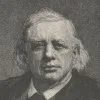I, who am a very earthy person, loathe that inhuman teaching which would make us despise and dislike the care of the body. I consider it just as wrong to reject natural pleasures as to set too much store by them.
[Moy qui ne manie que terre à terre, hay ceste inhumaine sapience, qui nous veut rendre desdaigneux & ennemis de la culture du corps. J’estime pareille injustice, de prendre à contre-cœur les voluptez naturelles, que de les prendre trop à cœur.]
Michel de Montaigne (1533-1592) French essayist
Essays, Book 3, ch. 13 “On Experience [De l’Experience]” (1588) (3.13) (1595) [tr. Cohen (1958)]
(Source)
(Source (French)). Alternate translations:My selfe, who but grovell on the ground, hate that kinde of inhumane Wisedome, which would make us disdainefull and enemies of the bodies reformation. I deeme it an equall injustice, either to take naturall sensualities against the hart, or to take them too neere the hart.
[tr. Florio (1603)]But I, who but crawl upon the Earth, hate this inhuman Wisdom, that will have us despise and hate all Culture of Body. I look upon it as an equal injustice to loath natural Pleasures, as to be too much in love with them.
[tr. Cotton (1686)]I, who but crawl upon the earth, hate this inhuman wisdom, that will have us despise and hate all culture of the body; I look upon it as an equal injustice to loath natural pleasures as to be too much in love with them.
[tr. Cotton/Hazlitt (1877)]I, who carry myself close to the ground, detest that inhuman wisdom that would make us disdain and be hostile to the care of the body. I deem it equally wrong to accept natural pleasures unwillingly and to accept them too willingly.
[tr. Ives (1925)]I, who operate only close to the ground, hate that inhuman wisdom that would make us disdainful enemies of the cultivation of the body. I consider it equal injustice to set our heart against natural pleasures and to set our heart too much on them.
[tr. Frame (1943)]I, who am always down-to-earth in my handling of anything. loathe that inhuman wisdom which seeks to render us disdainful and hostile towards the care of our bodies. I reckon that it is as injudicious to set our minds against natural pleasures as to allow them to dwell on them.
[tr. Screech (1987)]
Quotations about:
asceticism
Note not all quotations have been tagged, so Search may find additional quotes on this topic.
It is always easy as well as agreeable for the inferior ranks of mankind to claim merit from the contempt of that pomp and pleasure which fortune has placed beyond their reach. The virtue of the primitive Christians, like that of the first Romans, was very frequently guarded by poverty and ignorance.
Edward Gibbon (1737-1794) English historian
The Decline And Fall of the Roman Empire, Vol. 2, ch. 15 (1781)
(Source)
See La Rochefoucauld.
The way to avoid evil is not by maiming our passions, but by compelling them to yield their vigor to our moral nature. Thus they become, as in the ancient fable, the harnessed steeds which bear the chariot of the sun.
ABSTAINER, n. A weak person who yields to the temptation of denying himself a pleasure. A Total Abstainer is one who abstains from everything, but abstention, and especially from inactivity in the affairs of others.
Religions, which condemn the pleasures of senses, drive men to seek the pleasures of power. Throughout history, power has been the vice of the ascetic.
Bertrand Russell (1872-1970) English mathematician and philosopher
New York Herald Tribune Magazine (1928-05-06)
(Source)





